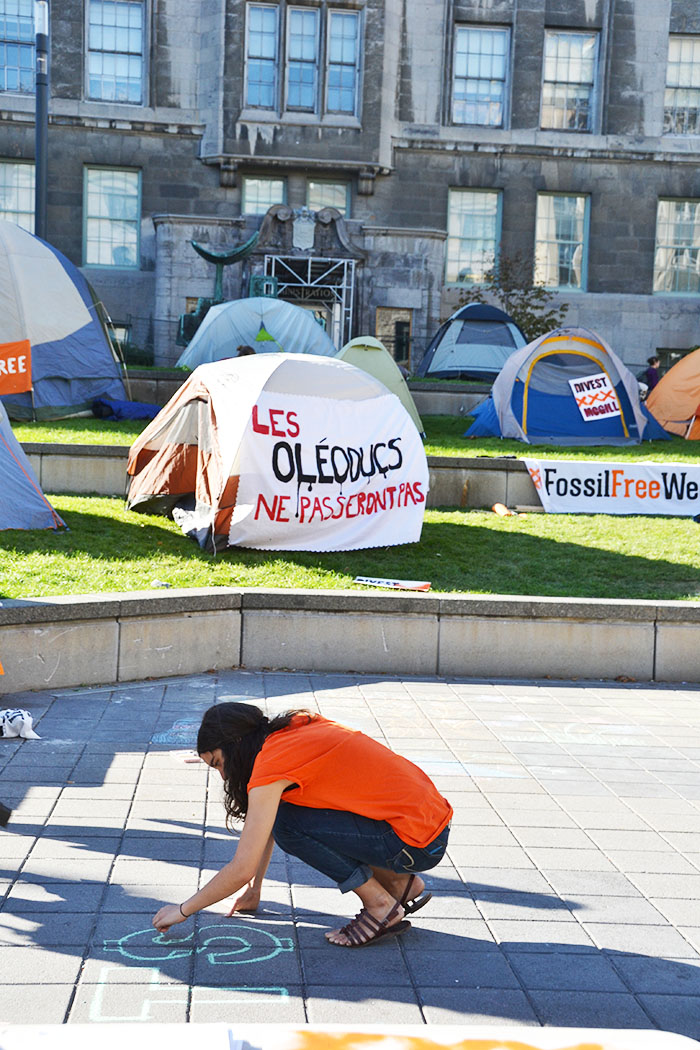On Oct. 22, Divest McGill met with the Committee to Advise on Matters of Social Responsibility (CAMSR), a sub-comittee of the Board of Governors (BOG), to discuss the future of McGill’s assets invested in fossil fuel-related industries. In their presentation, Divest McGill proposed to the committee a freeze on any future fossil fuel investments.
Joey Broda, U4 Engineering anda long-time member of Divest McGill, is committed to ensuring that Divest’s message is heard by the McGill administration.
“This was the third meeting we’ve had [between Divest and CAMSR] but this meeting was specifically to talk about the idea of a freeze,” Broda said. “That would require getting CAMSR to recommend to the Board of Governors that they discontinue future investments in fossil fuels until they’ve examined social harm that might be caused by fossil fuel investment. The idea being that […] if there is social harm involved with fossil fuel development, then they shouldn’t be expanding that harm until they’ve made the decision yes or no.”
Divest McGill presented their plan during an open portion of the CAMSR meeting, which was followed by a closed session in which the committee decided not to vote on immediately freezing future fossil fuel investments. Jed Lenetsky, U1 Environment, was disappointed by the outcome of the meeting.
“I was really impressed with how [the meeting] went,” Lenetsky said. “I thought we controlled the dialogue very well, and I thought we were able to pressure the administration fairly successfully, so it was a little disheartening after the meeting when we found out that, in the end, [the] good execution of our plan didn’t really come through.”
On the other hand Kip Cobbett, the chairman of the BoG felt the meeting was a success. .
“The meeting was very useful,” Cobbett said. “The Divest McGill people explained to us, in great detail, with a lot of supporting documentation, as to why they thought it was important for CAMSR to issue an immediate order freezing any further fossil fuel investments. The committee is now considering what decision we should render on the request for us to issue an immediate freeze.”
There has yet to be a full meeting for CAMSR to properly analyze the information presented by Divest McGill, and so the issue of freezing future assets is on the agenda for the next meeting on Nov. 11; however, that still leaves the overarching issue of total divestment unanswered, something that both parties hope to answer quickly.
“I am hopeful, I’m not going to say that I have an expectation, but I’m very, very hopeful that we will have a decision [on divestment] in the first quarter of next year,” Cobbett explained.
According to Broda, this deadline is due to outside pressure from alumni and donors of the university.
“There is a group of alumni that are going to return their diplomas if McGill hasn’t divested [by March 30],” Broda said. “There is also a campaign that is growing rather fast, to hold donations until [McGill divests], which is something that the university is really responding to.”
Between now and then, the CAMSR committee, once it has finished its deliberations, will make a recommendation as to the course of action to the Board of Governors. That recommendation will then either be accepted or rejected.
“It has been a very thorough process, we’ve had a lot of very good information provided to us by the divest people, and we’re working away at it,” said Cobbett.









